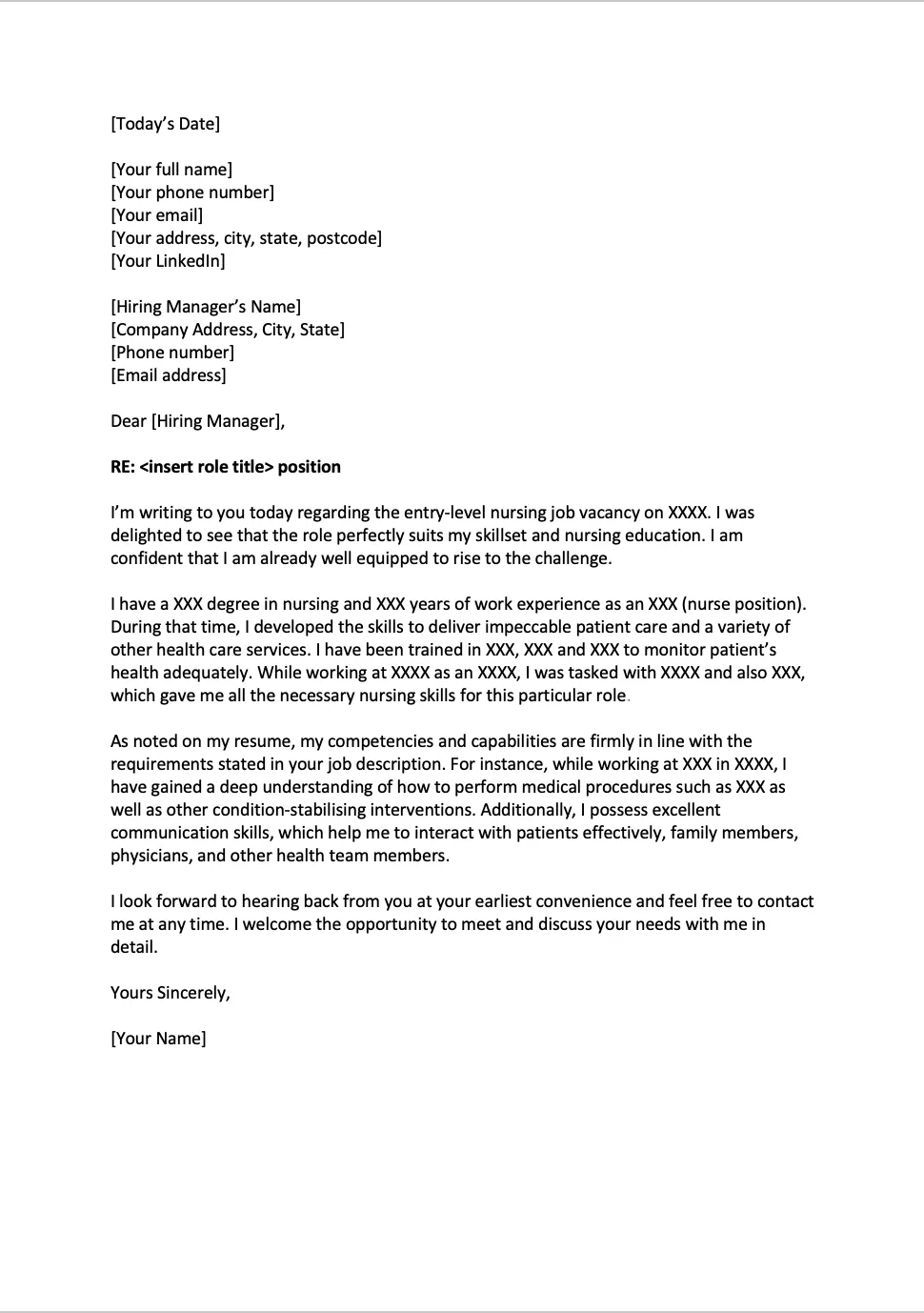Home Health Nurse Cover Letter The Foundation
Crafting a compelling home health nurse cover letter is crucial for landing your dream job. It’s your first introduction to a potential employer, a chance to showcase your skills, and highlight your passion for patient care. A well-written cover letter significantly increases your chances of getting an interview. This guide provides the top 5 essential tips to create an outstanding home health nurse cover letter that will help you stand out from the competition and make a lasting impression. Remember, the goal is not just to list your qualifications, but to tell a story that resonates with the hiring manager and demonstrates why you are the perfect fit for the role. A strong foundation is key to building a successful application.
Highlighting Your Skills
As a home health nurse, you possess a unique skill set that goes beyond clinical expertise. Your cover letter should emphasize these skills, including clinical competencies like wound care, medication management, and patient assessment. Also, highlight your soft skills, such as empathy, communication, and problem-solving abilities. Provide specific examples to support your claims. For instance, instead of simply stating ’excellent communication skills,’ describe a situation where you effectively communicated complex medical information to a patient and their family, resulting in improved understanding and adherence to the treatment plan. Showcasing your skills with concrete examples demonstrates your value and ability to excel in the role.
Tailoring Your Letter
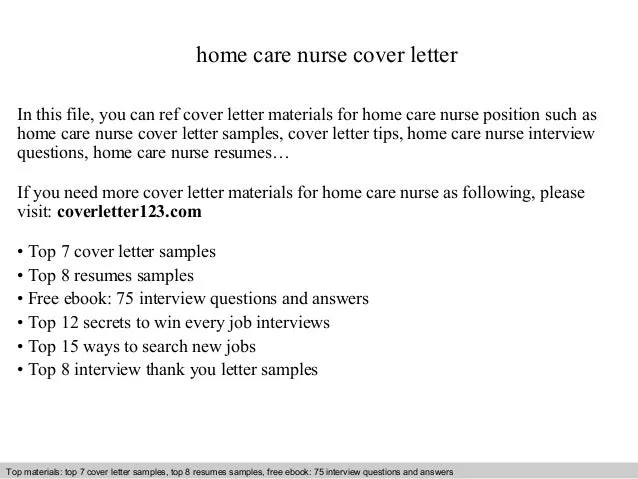
One of the biggest mistakes applicants make is sending generic cover letters. To truly impress, tailor each cover letter to the specific job and organization. Research the home health agency, understand their mission, and identify their priorities. Then, align your skills and experiences with their needs. Review the job description carefully and use the same keywords and phrases in your cover letter. Demonstrate how your qualifications make you a perfect fit for the role and the company culture. This level of personalization shows that you’ve taken the time to understand the position and are genuinely interested in the opportunity.
Showcasing Relevant Experience
Your cover letter should detail your relevant experience in home healthcare or related fields. Even if you’re a recent graduate, you can draw from clinical rotations, volunteer work, or any experience that demonstrates your ability to care for patients in their homes. Quantify your achievements whenever possible. For example, instead of saying ‘managed a caseload of patients,’ state ‘managed a caseload of 15 patients, ensuring consistent care and reducing hospital readmissions by 10%.’ Describe specific situations where you provided exceptional care, overcame challenges, or contributed to positive patient outcomes. The more specific and detailed your examples, the more impactful your cover letter will be. Remember to adhere to all HIPPA compliance rules when giving examples.
Home Health Nurse Cover Letter Formatting and Structure
Choosing the Right Tone
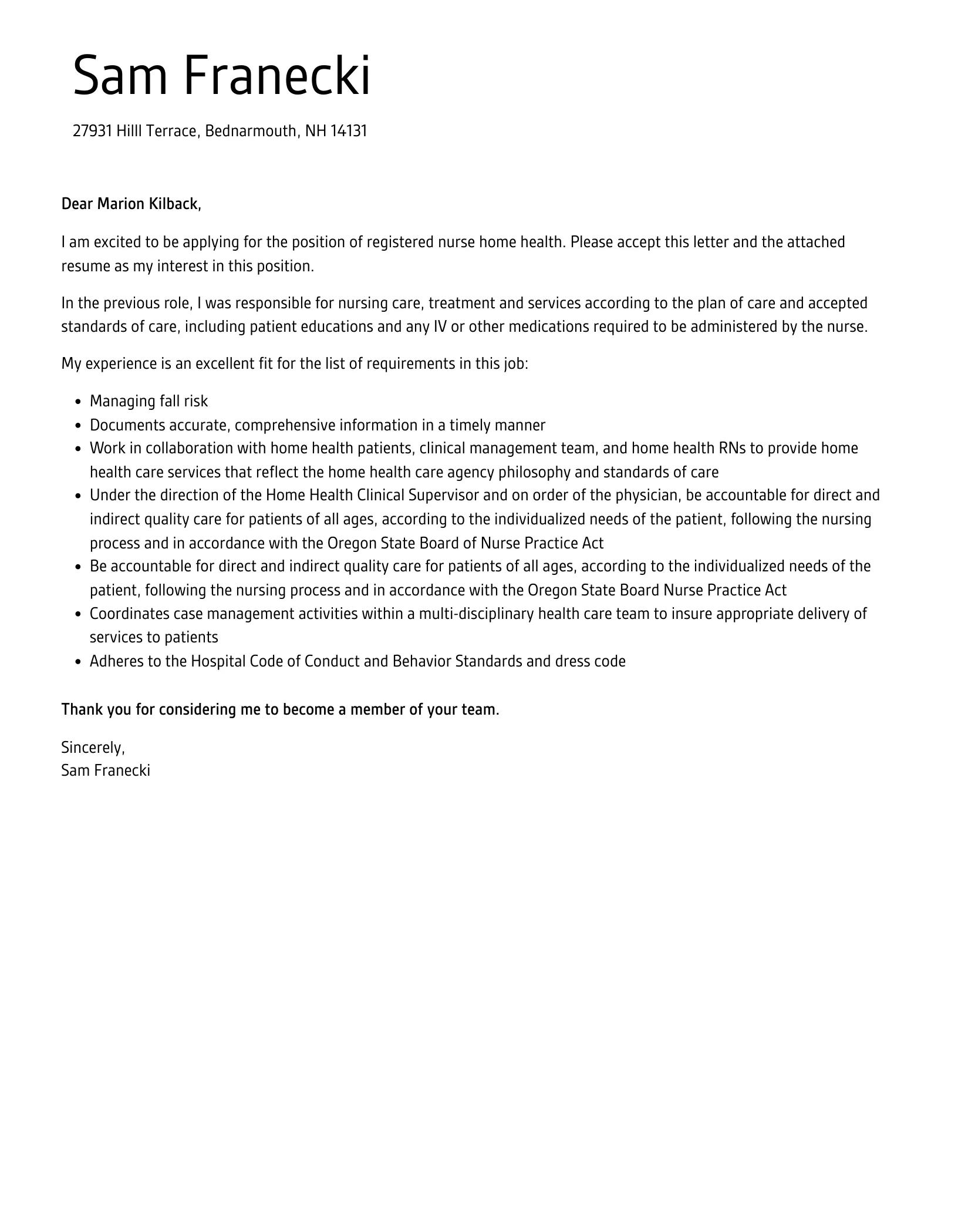
The tone of your cover letter should be professional yet compassionate. As a home health nurse, you are a caregiver. Reflect this in your writing. Avoid overly formal language that can sound impersonal. Use a warm, friendly tone to convey your empathy and genuine care for patients. Show enthusiasm for the position and the opportunity to make a difference in people’s lives. However, always maintain professionalism. The right tone will make you seem relatable to the hiring manager. Balance your expression of care with professionalism.
Formatting for Readability
The format of your cover letter is essential for readability. Use a clean, easy-to-read font like Arial or Times New Roman, with a font size between 11 and 12 points. Maintain consistent formatting throughout the document. Use clear headings and subheadings to break up the text and make it easier to scan. Use short paragraphs and plenty of white space to avoid overwhelming the reader. Proofread your cover letter for any inconsistencies and formatting errors. A well-formatted cover letter is both visually appealing and easy to navigate. Easy readability suggests care and professionalism.
Home Health Nurse Cover Letter Key Content
Address the Hiring Manager Directly
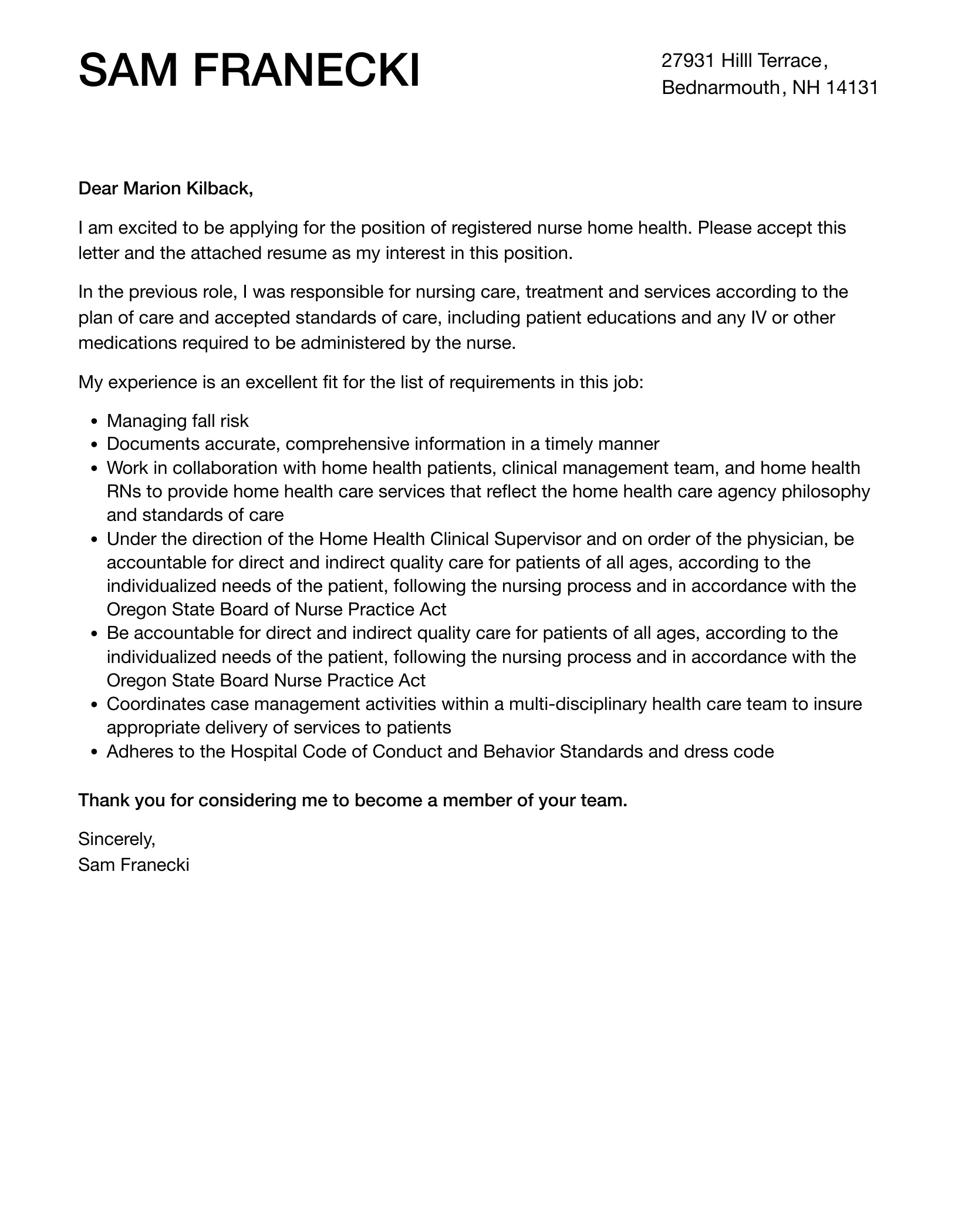
Whenever possible, address the hiring manager by name. This shows that you’ve taken the time to research the company and are interested in the specific opportunity. If you can’t find the hiring manager’s name, use a professional salutation like ‘Dear Hiring Manager.’ Avoid generic greetings like ‘To Whom It May Concern.’ Personalizing the greeting makes your cover letter feel more engaging and shows that you’re committed to the application. Research the company to identify the hiring manager.
Demonstrate Your Passion
Home health nursing is a demanding but rewarding career. Your cover letter should reflect your passion for this work. Share why you are drawn to home health care. Express your commitment to providing compassionate care, improving patients’ quality of life, and working independently. This helps you to make a connection with the hiring manager. Share stories that show your passion for your profession. Your enthusiasm will make your application far more appealing than an application that just lists skills.
Outline Your Qualifications
Clearly outline your qualifications in the cover letter. Provide your nursing credentials, certifications, and licenses. Highlight your experience in home healthcare, including the types of patients you’ve cared for and the tasks you’ve performed. If you have any specialized training, such as geriatric care or wound care, mention it. Emphasize the skills and knowledge that make you a qualified candidate for the position. Briefly summarize your relevant experience.
Home Health Nurse Cover Letter: Proofreading is Essential
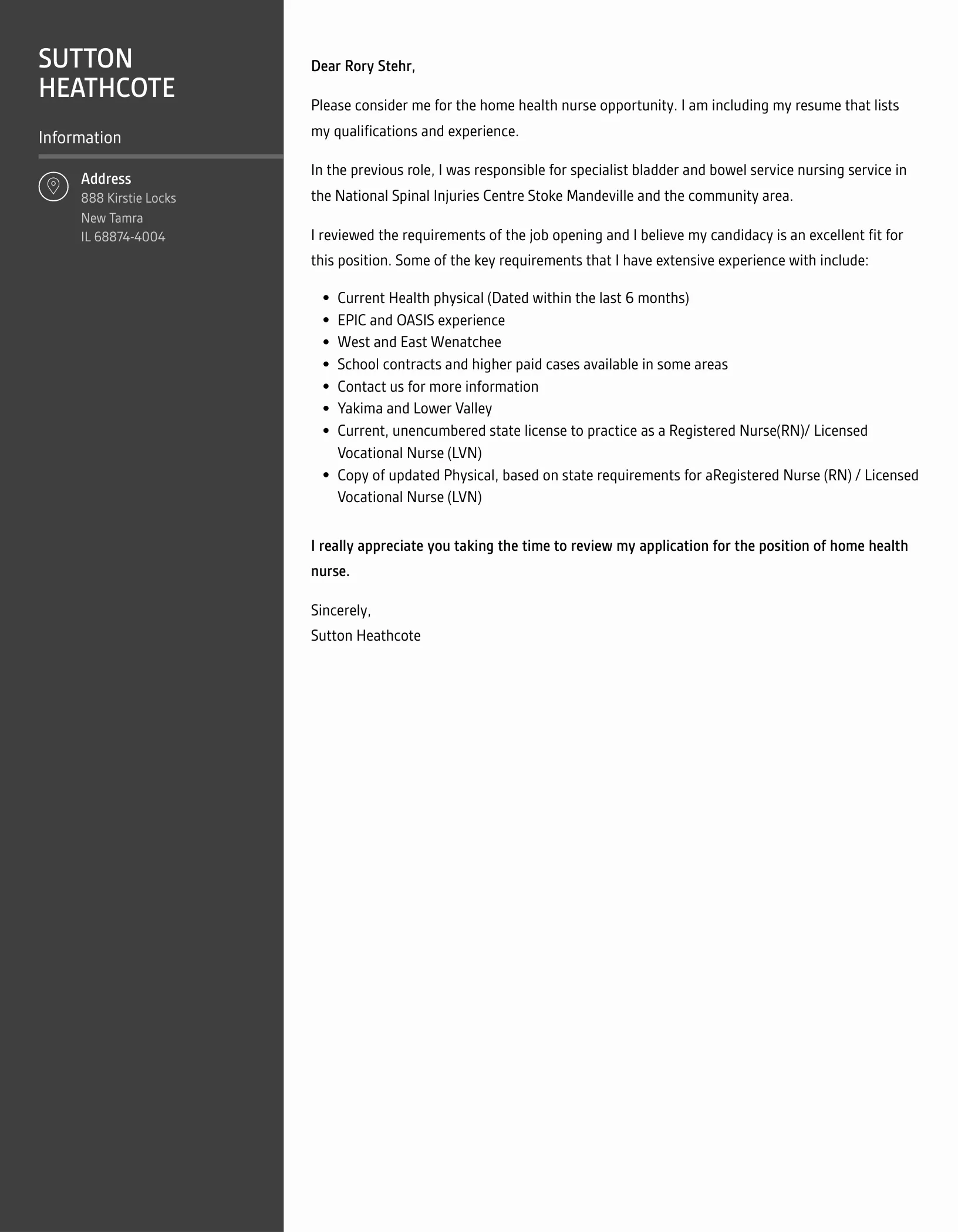
Checking for Grammar and Spelling Errors
Before submitting your cover letter, proofread it carefully for any grammatical errors and spelling mistakes. Even a single error can undermine your credibility. Use grammar and spell-checking tools, but don’t rely on them completely. Read the cover letter aloud to catch any awkward phrasing or sentence structure issues. Having a second set of eyes review your letter can also be helpful. A polished, error-free cover letter demonstrates your attention to detail and professionalism. Correct any spelling or grammar mistakes immediately.
Ensuring Clarity and Conciseness
Keep your cover letter concise and easy to understand. Avoid using overly complex language or jargon that the hiring manager may not understand. Use clear and concise sentences, and get straight to the point. The goal is to showcase your qualifications and express your interest efficiently. A well-written cover letter is usually about one page in length. Brevity, clarity, and conciseness are important.
Home Health Nurse Cover Letter: Call to Action
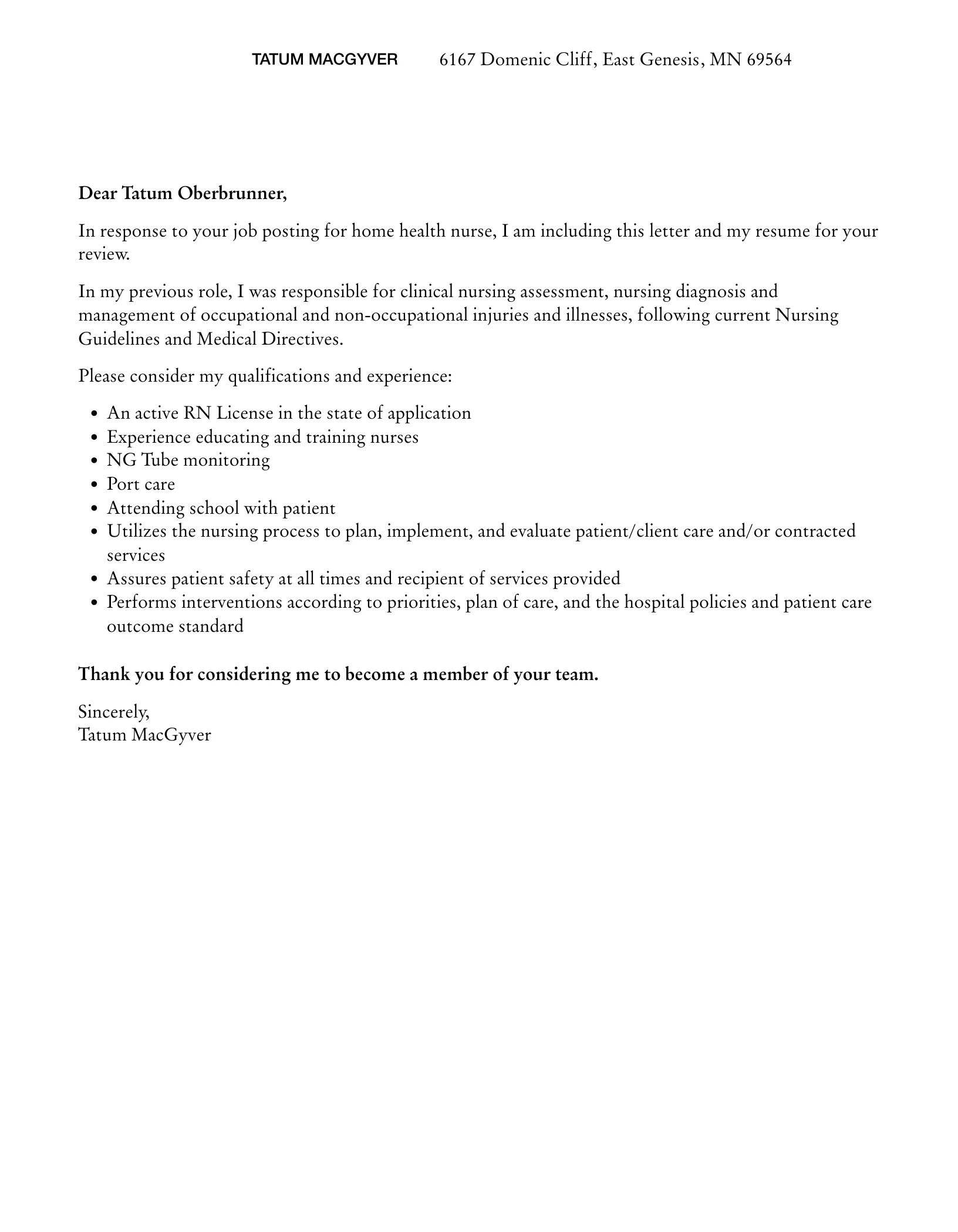
Expressing Your Interest
End your cover letter by expressing your strong interest in the position and the opportunity to discuss your qualifications further. Reiterate your enthusiasm for the role and home healthcare. Thank the hiring manager for their time and consideration. This is a critical step as it expresses the initiative you are taking. The hiring manager will be able to gauge how interested you are.
Providing Contact Information
Include your contact information at the end of your cover letter, including your phone number and email address. Ensure that your email address is professional and that your voicemail greeting is appropriate. This will allow the hiring manager to contact you quickly and easily to schedule an interview. Double-check your contact information to ensure that it is accurate. Provide the best contact information to guarantee you can be reached.
